Takesa Frank: Taking A Passion for Protecting Country Global

by Vanessa Barnett, WWF-Australia /
In the quiet, forested hills of Yuin Country on the New South Wales South Coast, the Clyde River winds through ancient bushland containing lyrebirds mimicking the sounds of the world around them.
This very special place is home to Takesa Frank — a proud young Aboriginal woman standing tall for Country.
Takesa is a unique conservation voice - she is passionate about geography, mentoring youth, environmental activism, and is one of the most compelling Indigenous nature-focused figures of her generation.
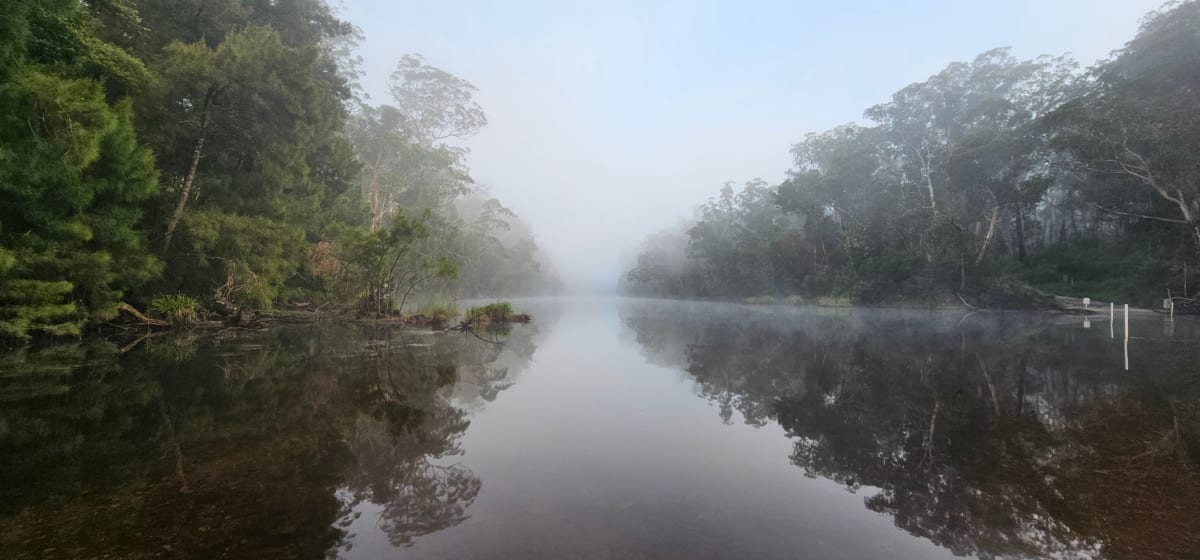
At just 23, Takesa connects deeply with this year’s NAIDOC Week theme: “The Next Generation: Strength, Vision & Legacy.”
Her story is one of deep connection to Country, courageous action in the face of environmental destruction, and a commitment to mentoring and empowering others to protect the natural world.
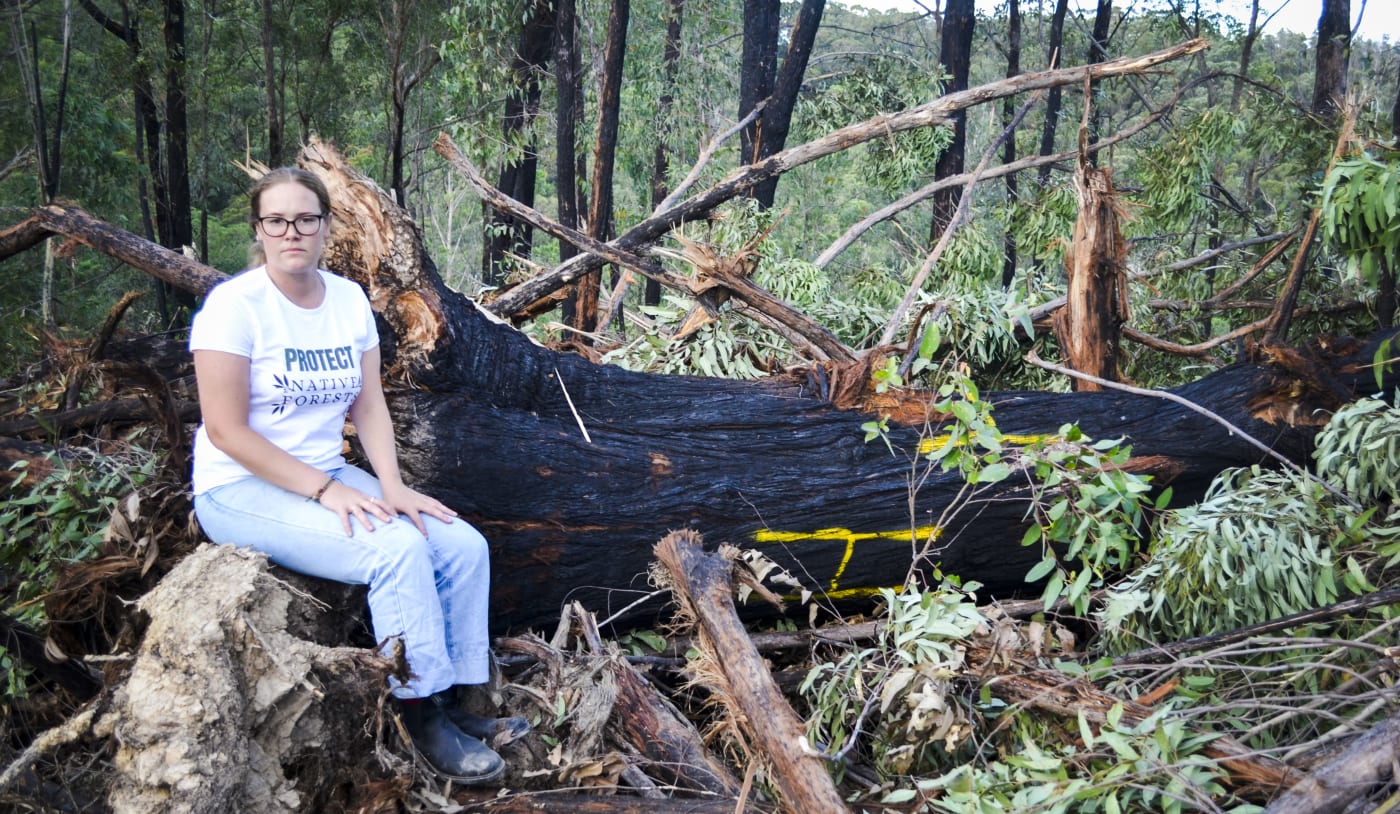
Takesa grew up in the natural environment of Shoalhaven, surrounded by the Brooman State Forest and pristine Clyde River—one of the cleanest rivers in New South Wales.
Her childhood was shaped by the rhythms of the bush: playing outside with her siblings, collecting rainwater and relying on solar power.
“From a really young age, we learnt the value of nature,” Takesa said.
“It wasn’t just something we appreciated—it was how we lived.”
That early connection to Country became the foundation for her environmental activism.
But it was the devastating 2019–20 bushfires that transformed her personal passion into purpose as the fires came within one kilometer of her family’s home.
For two weeks, she and her family fought to protect not just their house, but the surrounding bushland and a nearby blueberry farm.
“It wasn’t just about saving property,” Takesa recalls.
“It was about protecting the forest that had always protected us.”
Just months later, logging resumed in the same forests that had barely recovered from the fires.
“We were sitting on the balcony watching the trees fall - first to fire, then to chainsaws. One was a natural disaster. The other was a choice.”
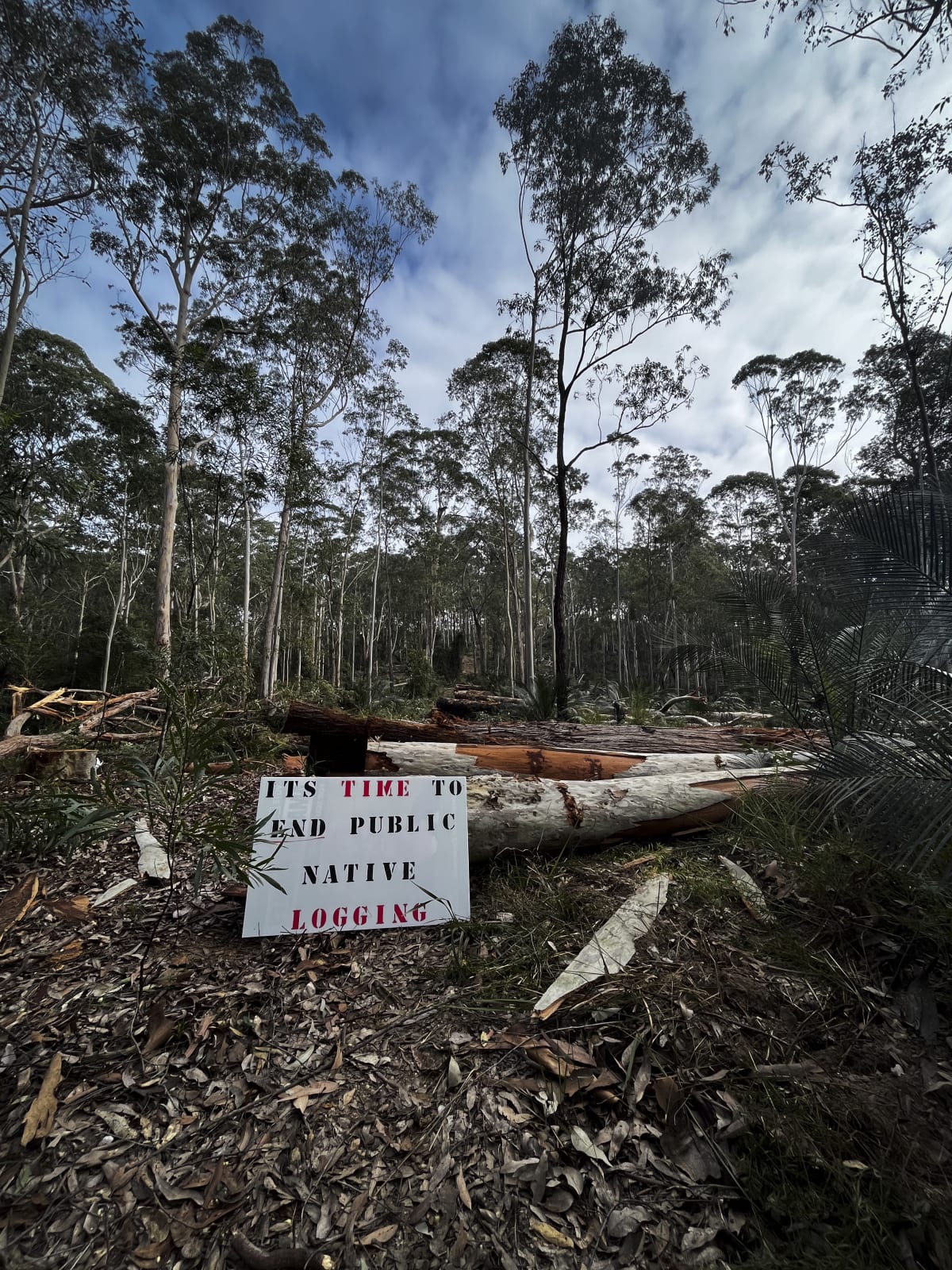
Vision of a future where people and nature thrive together
Takesa Frank’s vision is clear: a future where people and nature thrive together, where young people—especially young Aboriginal people—have a seat at the table where decisions about Country are made with care, by representatives supercharged by youthful energy and skillsets, but supported by millennia of knowledge.
“Young mob are the future - we’re the ones who will live with the consequences of today’s decisions.
"We need to be in the room when those decisions are made.”
That belief led her to run as the youngest Greens candidate for Shoalhaven City Council in 2021.
It also fuels her work with the NSW Forest Alliance and the Bob Brown Foundation, where she’s been a leading voice in the campaign to end native forest logging in New South Wales.
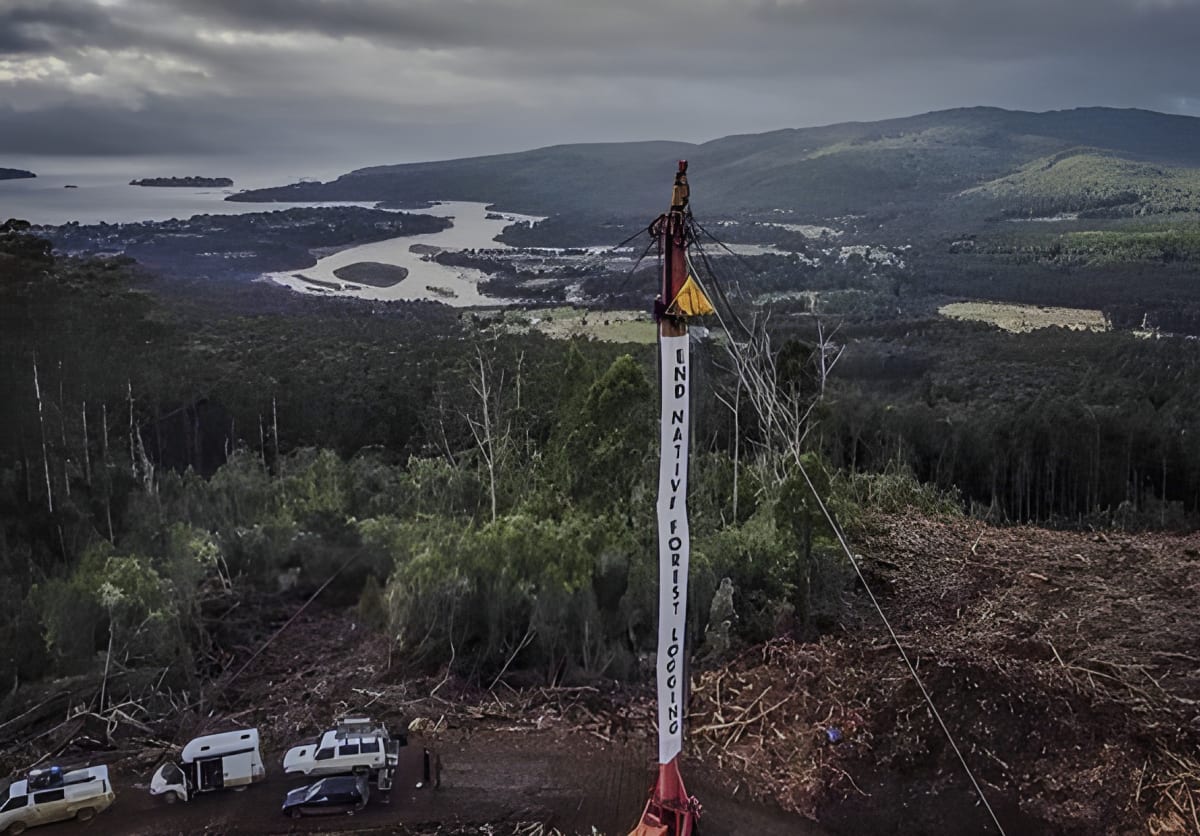
In 2023, Takesa took her activism to new heights—literally.
She climbed 20 metres into the canopy of Shallow Crossing State Forest near the Clyde River and spent six hours in a tree sit, halting logging operations and drawing national attention to the destruction of native forests for low-value products like firewood and woodchips.
It was a bold move for someone who describes herself as “not usually a radical”.
“I’d tried everything—petitions, meetings, letters. Nothing was changing. I needed to do something that would be seen.”
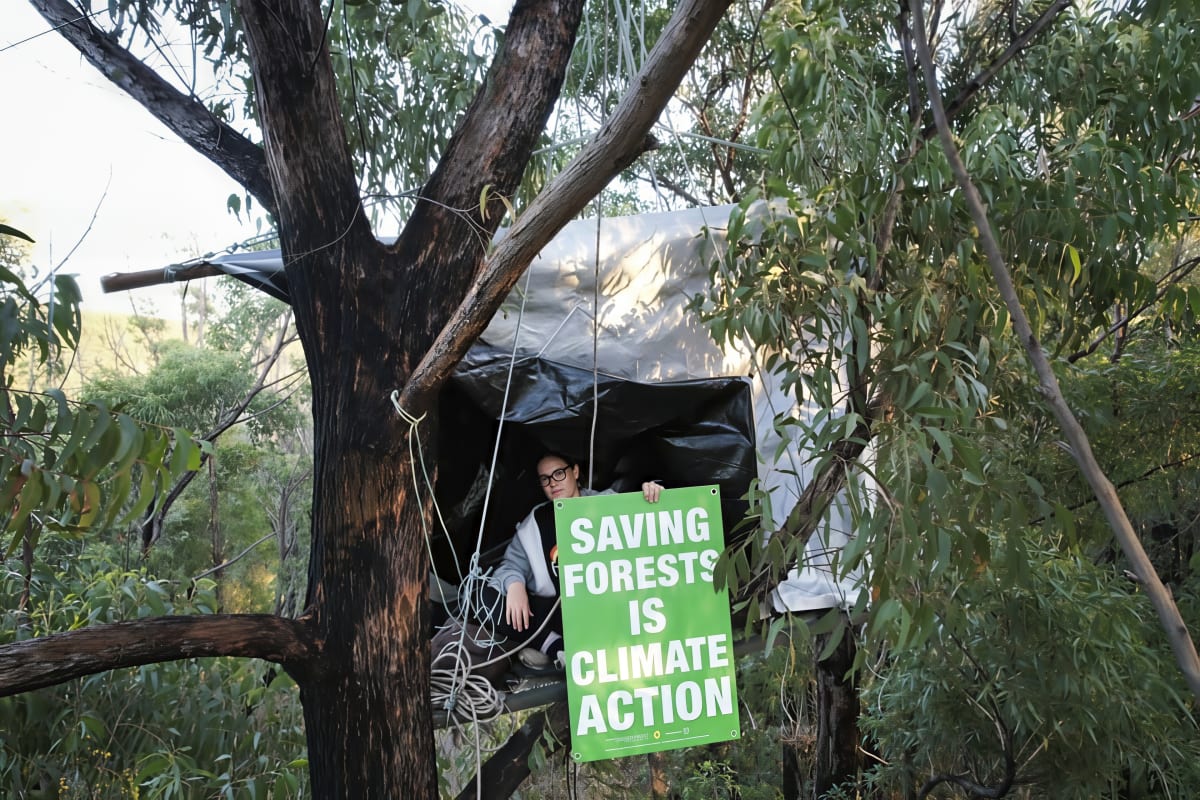
While suspended in the canopy, a goanna— Girawa, the local totem— climbed onto her ropes and sat with her for hours.
“It felt like nature was standing in solidarity with me. It was a moment I’ll never forget.”
Legacy through mentorship and community
But Takesa’s impact goes far beyond protests and petitions. She’s mentoring the next generation of environmental leaders, especially young Aboriginal people.
Through her work with a local mental health charity, Sonder Youth, she runs six-month programs that teach young people how to create change in their communities.
“Mentoring is so important."
“When I started, I didn’t know everything and I still don’t. But you don’t need to know everything to start making a difference.”
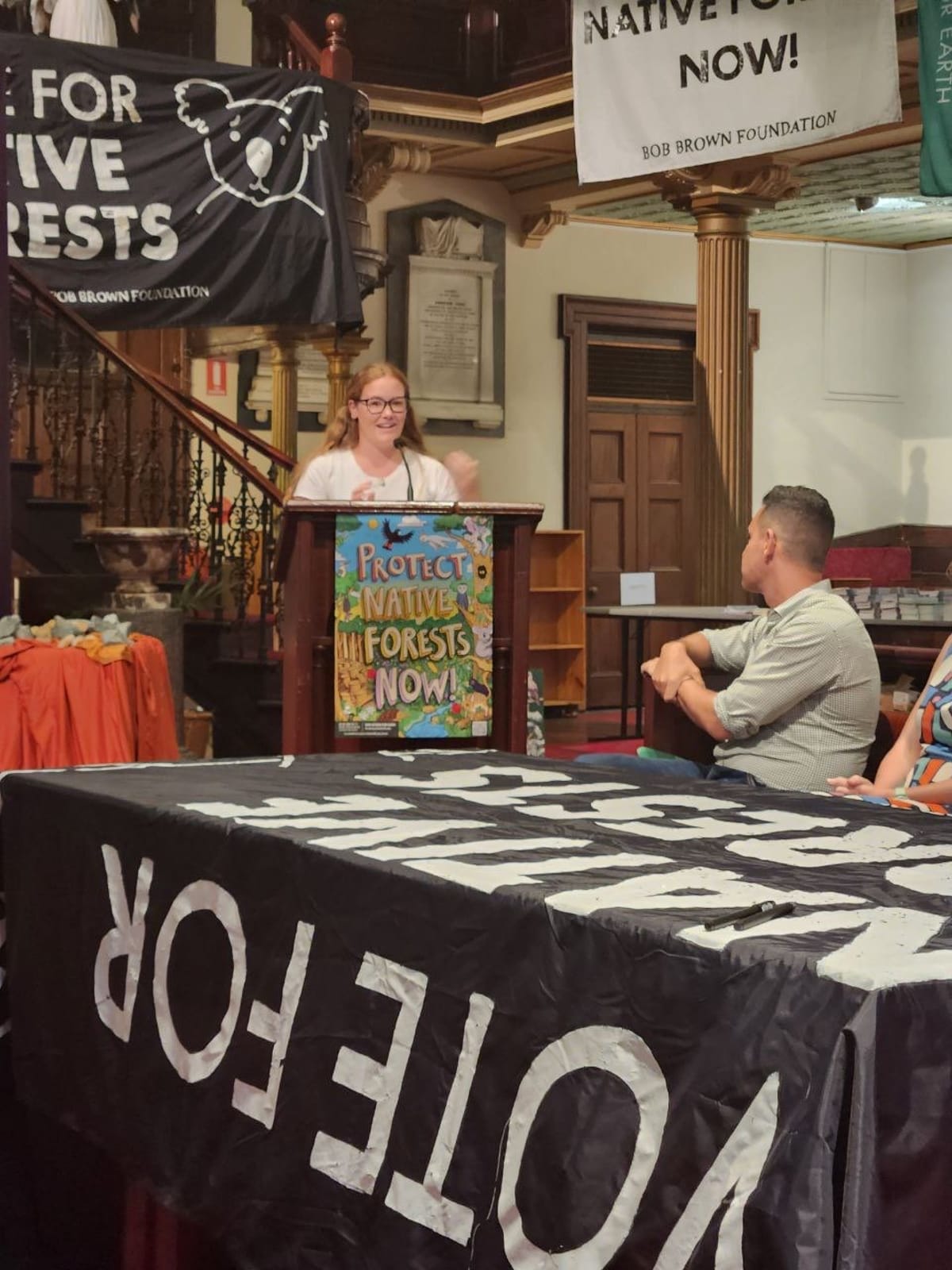
Her environmentalist journey began with a small but powerful project in high school: removing single-use plastic water bottles from the school canteen.
“It felt huge at the time, but it taught me that small actions can ripple out and create big change.”
That ripple effect continued into 2023 when Takesa was named Young Environmentalist of the Year by the Bob Brown Foundation.
The award recognised not just her activism, but her leadership, her community-building and her unwavering commitment to protect Country.
“I don’t see it as an individual award. It's for everyone who’s been part of this journey—my community, my family, the people who’ve stood beside me in the forest and in the fight.”
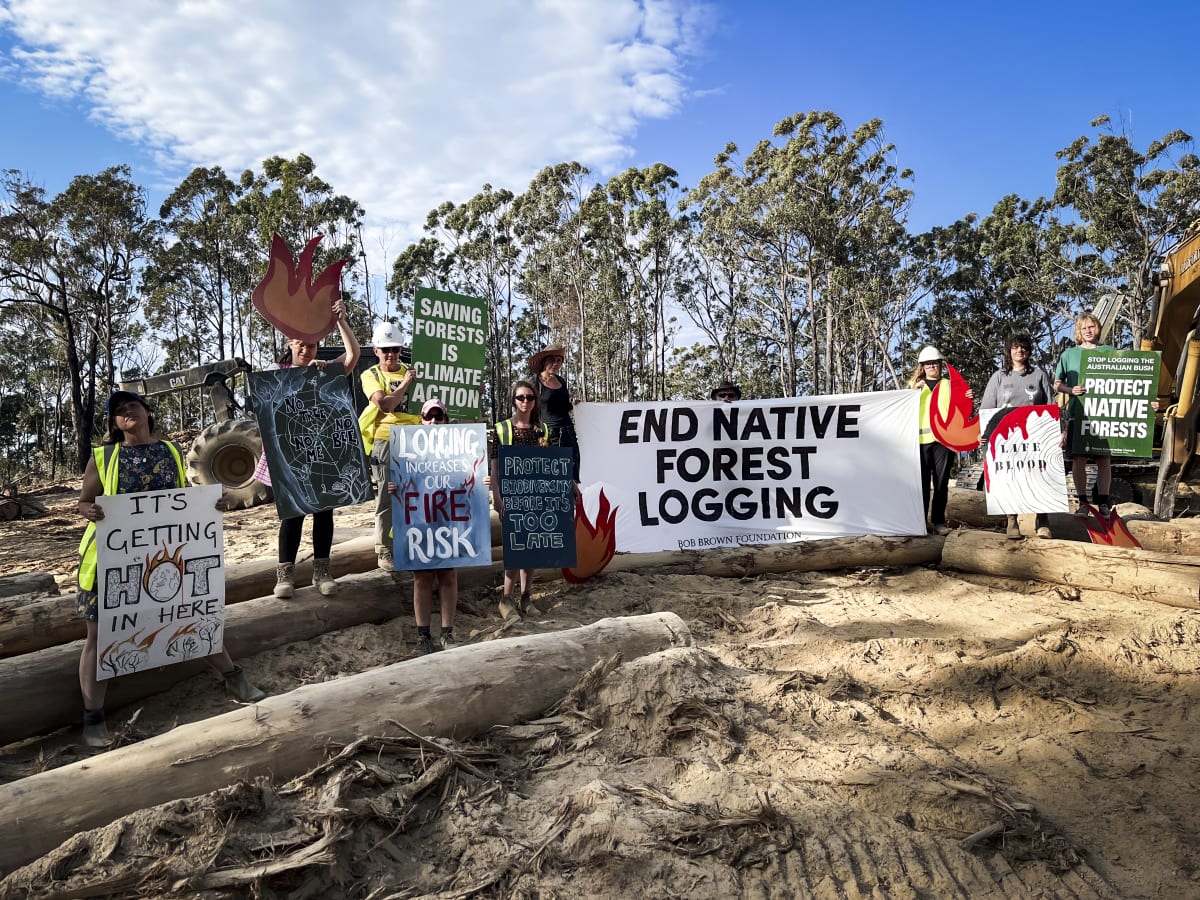
When asked who has inspired her most so far along her journey, Takesa doesn’t hesitate to name Aunty Nellie Mooney, a respected Elder in the Milton-Ulladulla area, now in her late 80s, who founded the region’s first Aboriginal Homework Centre more than 50 years ago.
Takesa attended that centre from Year 7 through to Year 12.
“Aunty Nellie was there every single week - not just helping with homework, but sharing stories, listening and showing up.
"That kind of consistency and care—it stays with you.”
“Even though our causes were different, the heart behind them was the same.
"She taught me the power of passion and the importance of living by your values. ”
The power of education and Indigenous Knowledge
Takesa recently completed a Bachelor of Geography, majoring in human geography and minoring in Indigenous studies.
Her academic background gives her a unique lens on the intersection of people, policy and place.
“Geography isn’t just maps. It’s about how people interact with the environment, and how policies impact communities on-the-ground.
"Studying it helped me understand the systems behind the issues I care about.”
“For too long, Aboriginal voices have been sidelined.
But we’ve been caring for Country for tens of thousands of years. That knowledge is powerful—and it’s needed now more than ever.”
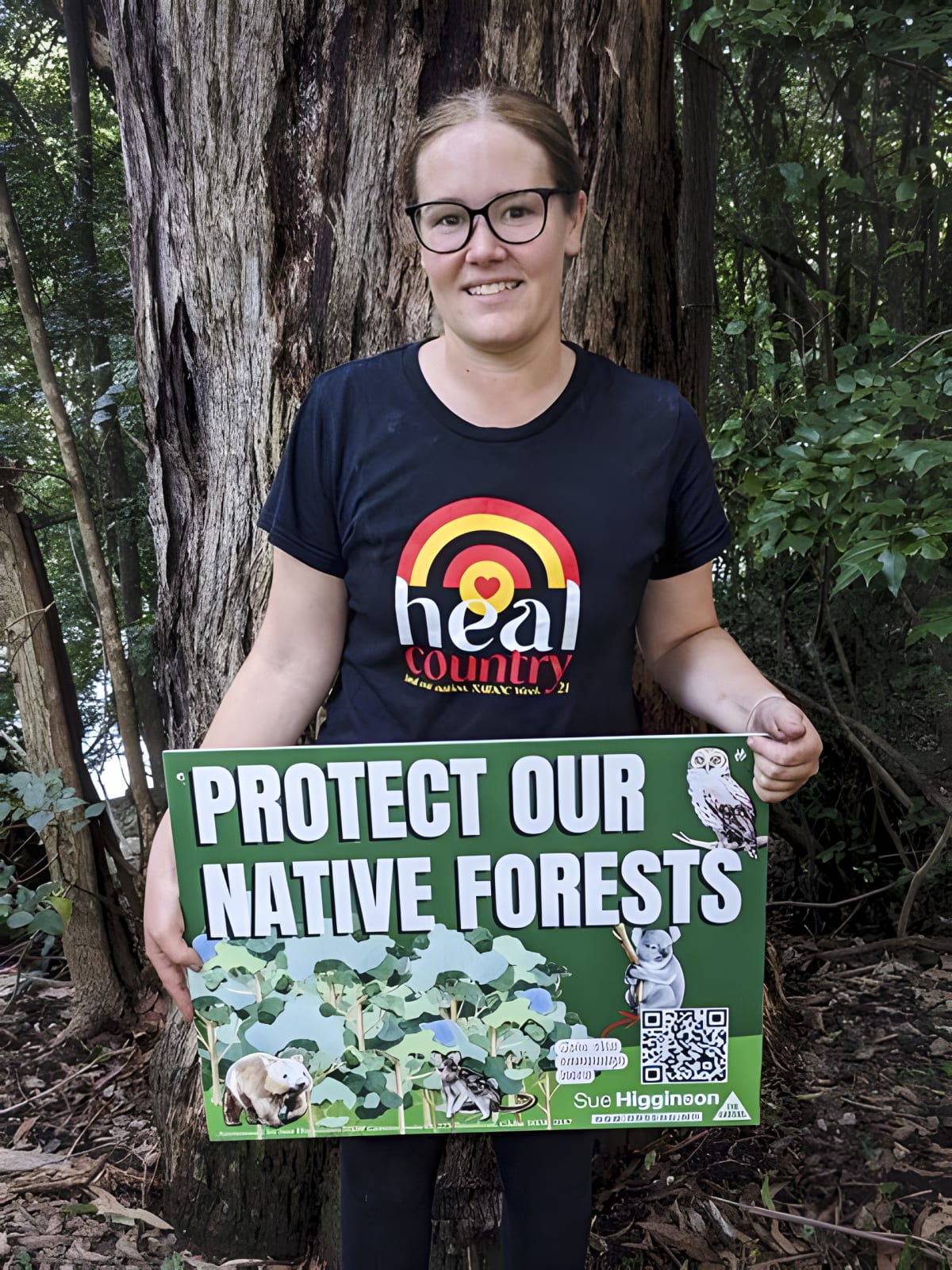
A seat at the table and a voice on the world stage
Marking an exciting new chapter in her conservation leadership journey, Takesa will be a spokesperson for WWF Asia & Pacific at the upcoming COP 30 climate summit in Brazil.
It’s an opportunity she describes as “a dream come true.”
“To go from a small off-grid home in the bush to a global stage where climate decisions are made is such an honour,” Takesa said.
“I’ll be there not just for me, but for my community, for young people and for Country.”
“It’s hard to get a seat at the table. There’s a fear you’re not taken seriously because you don’t have a degree or decades of experience.
"And for Aboriginal young people, there’s the added pressure of not wanting to speak over your Elders.”
But Takesa believes in the power of intergenerational collaboration.
“We need to respect our Elders—and they need to respect what young people bring. We have new ideas, new tools, and a deep love for Country.
"Our voices matter.”
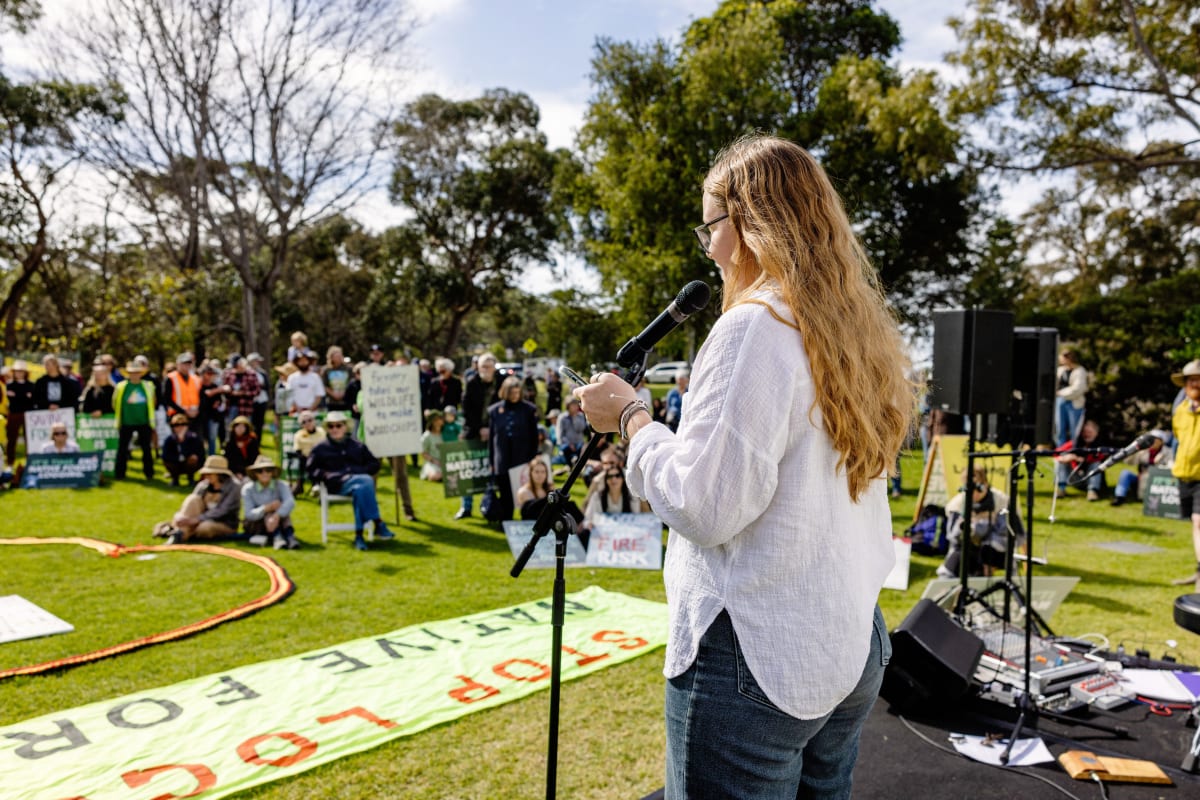
The Next Generation: Strength, Vision & Legacy
As we celebrate NAIDOC Week 2025, Takesa Frank reminds us what the theme truly means.
Her strength lies in her roots—her connection to Country, her resilience in the face of injustice and her courage to act.
Her vision is one of unity, regeneration and justice and her legacy is already taking shape—in the South Coast forests where she lives, alongside the young people she mentors and during the conversations she’s sparked across the country.




